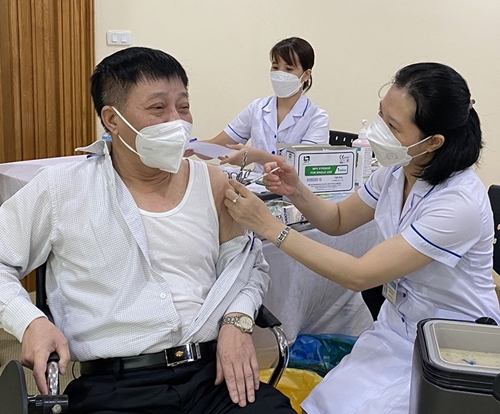Accordingly, the program aims to ensure an adequate supply of vaccines against infectious diseases under the expanded program on immunization, vaccines for voluntary immunization services and epidemics prevention and control.
By 2025, Vietnam is expected to master the production technology of ten different vaccines used for humans and be able to produce at least three, including a 5-in-1 vaccine to prevent diphtheria, pertussis (whooping cough), tetanus, Hib, hepatitis B, and poliomyelitis.
    |
 |
|
Vietnam sets target to produce vaccines meeting international standards. |
By 2030, Vietnam has also set the goal of mastering the production technology of 15 types of vaccines and being capable of producing at least five types while the production of all domestic vaccines meets international standards.
To realize such goals, the Government underlines the importance of issuing specific mechanisms, prioritizing the research and production of vaccines for arising diseases, vaccines that are not available in Vietnam, and combination and preventive vaccines not included in the Expanded Immunization Program.
Regulations on circulation licensing, bidding, supply and use of vaccines; investment in upgrading facilities and research equipment; human resource development; encouraging research and international cooperation; and the application of advanced technologies are listed among support activities under the program.
The Government has also clarified that the fund for the implementation of the program, which includes central and local budgets following the decentralization of the state budget, other financial sources mobilized from organizations and individuals at home and aboard (optional), and lawful payment of voluntary vaccination services.
Translated by Quynh Oanh